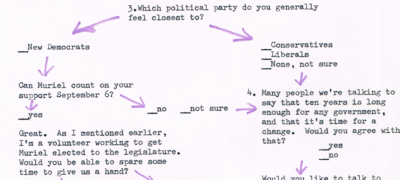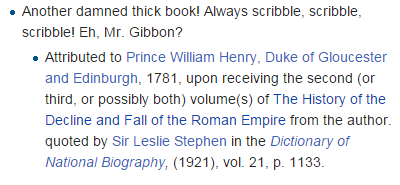Another voice common to most of us starts to whisper just as we are finally getting hold of the first tendril of a good night's sleep. That voice tells us what we should have said, the clinching phrase that would have swayed the meeting to our side in the debate, silenced the bully, stifled the person telling racist jokes on the bus. So witty, so incisive...and so impossibly too late. And, of course, after that voice has spoken we are too annoyed with ourselves to go to sleep easily.
I have other inner voices that are more welcome, though. My dad died a few years ago; but he had throat cancer early and most of his voice died in 1963 as a by-product of the surgery that saved his life. He had a hearty whisper from then on, but not the remarkable, rich baritone he had had before the operation. When I was small and we all crammed into the car for family trips, he would sometimes sing to amuse us (when he wasn't making up cribbage hands from the letters and numbers on the license plates of the cars ahead of us). Sometimes if I sing "Bye, Bye, Blackbird" I can sort of hear him singing along with me. That's a precious inner voice.
And there are other inner voices that just plain puzzle me. Back before I moved from guitar to banjo, I used to play a lot of Renaissance pieces that had originally been composed for the lute. I have the remains of the music book I wore to tatters over many years of practicing that must have been a sad trial for anyone within range.
Adrian Denss wrote one of those pieces, a "ronde", in 1594. Here's a snippet of it:
I plucked away at this thing off and on for a week or so, and finally had the fingering worked out. Then, the first time I tried to play it through without pausing, a voice spoke in my head when I got to the measure I have put in a red rectangle. Between the little run and the chord, the voice said, "Wouldn't it have been better if, rather than trying to capture more of the enemy, they had figured out how to take care of those they had already captured?"
I don't know what it meant, or what it means. And, of course, after the first time, the words were there as if printed on the page whenever I played that piece and got to that measure.
Maybe that's why I moved over to banjo.














